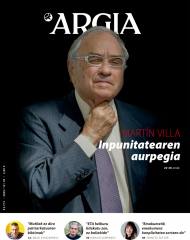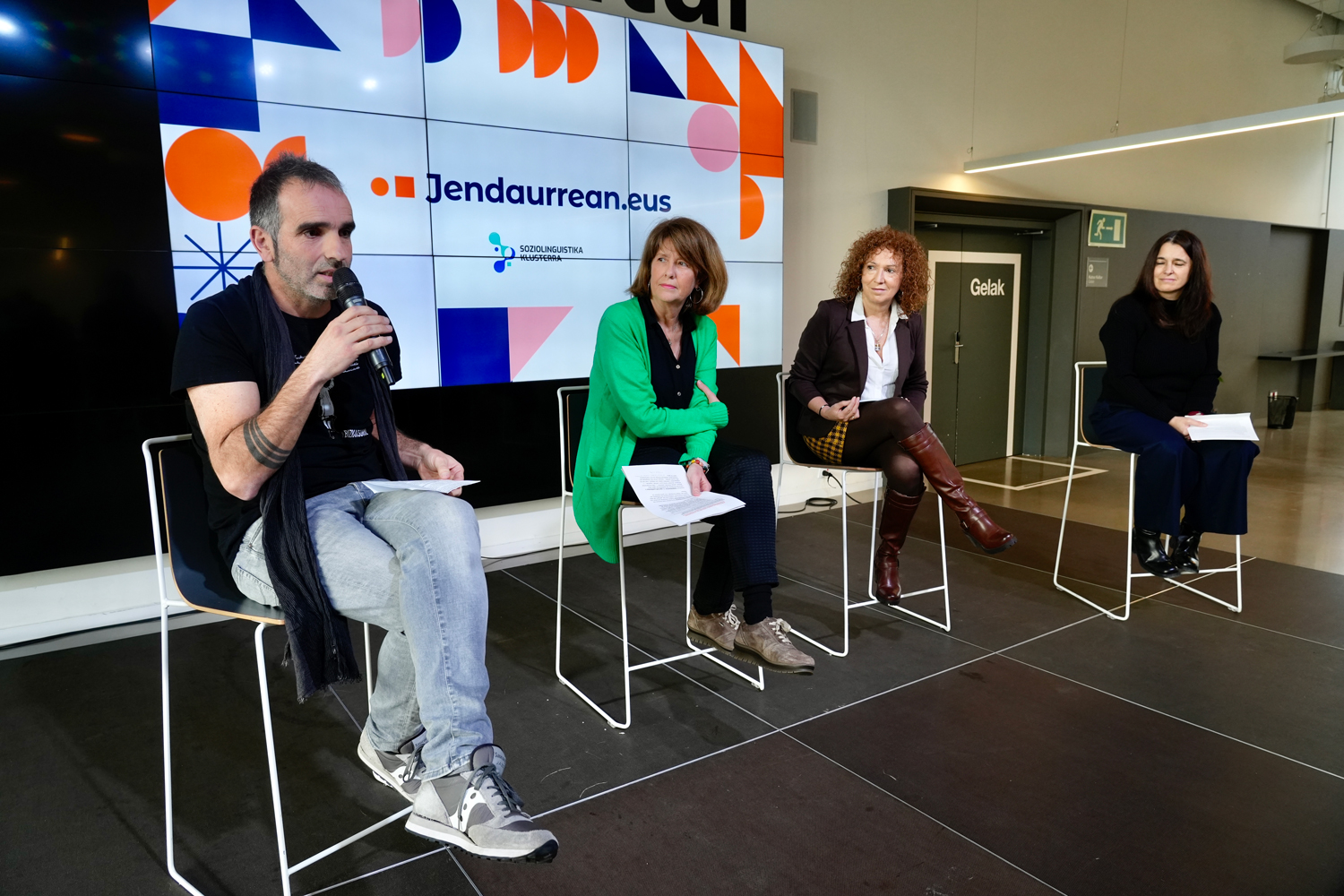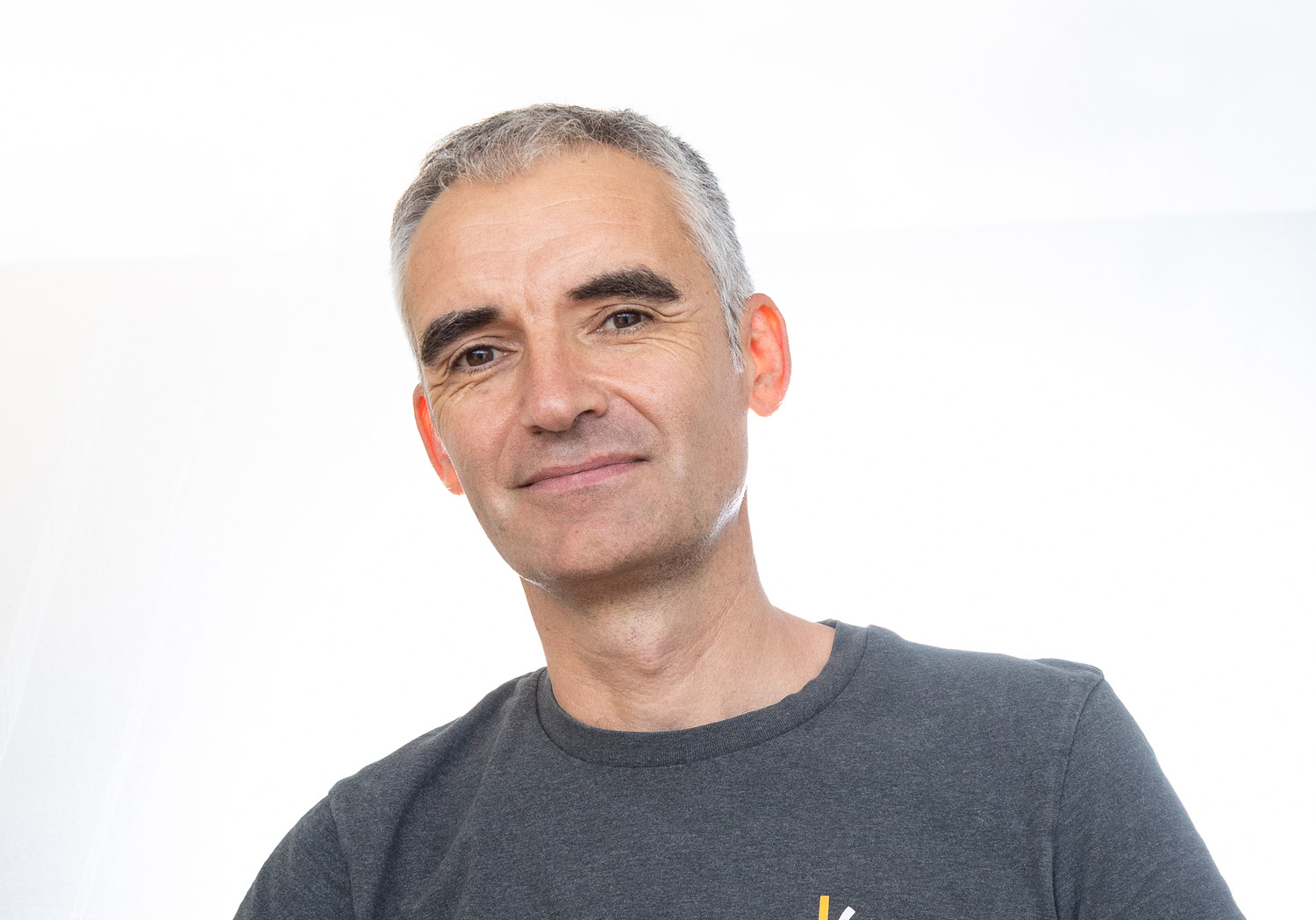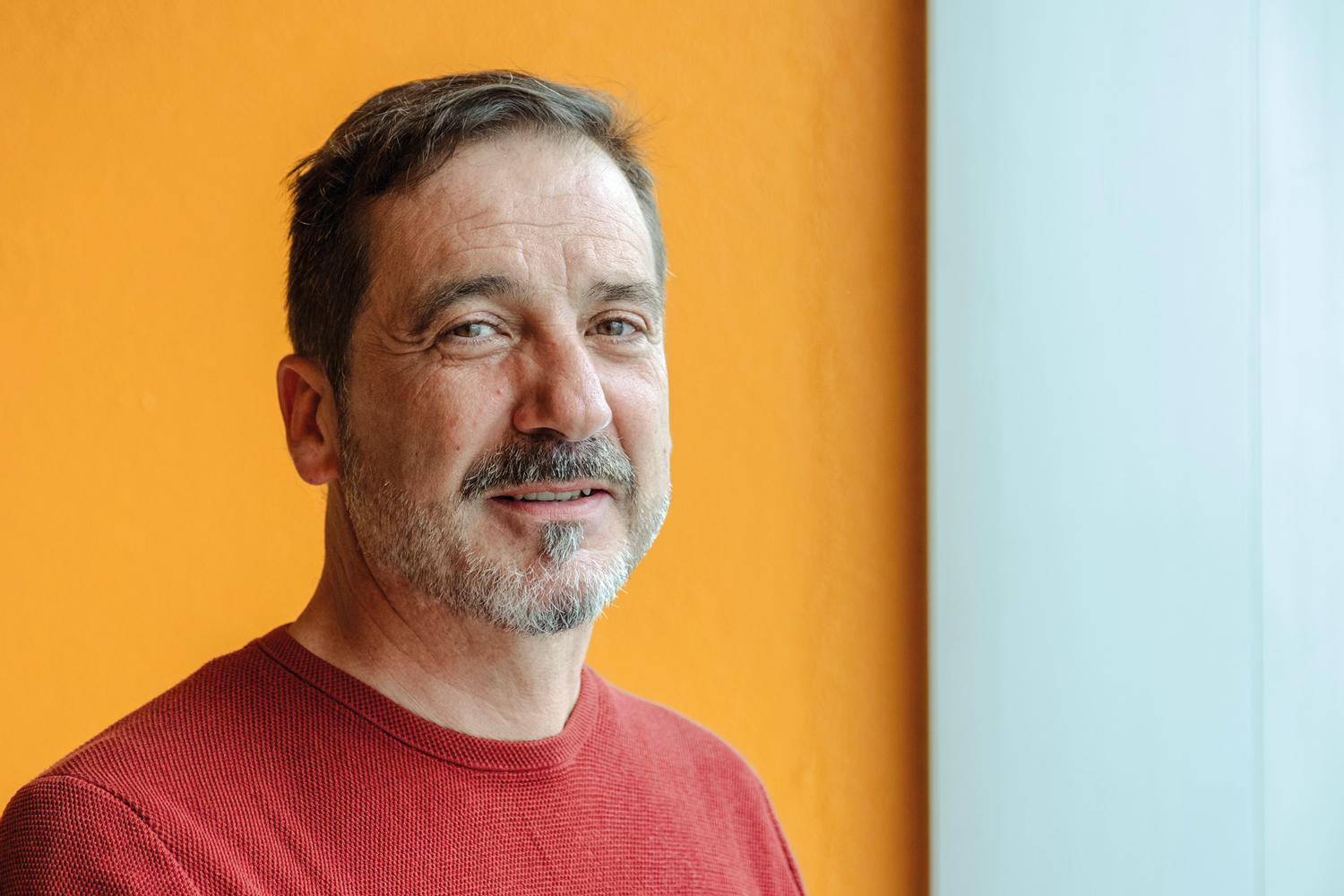"We have mystified the Basque language as if it were not a language that serves to communicate"
- The 24-year-old Marsellés (France) is able to speak in Basque, French, English, Spanish, Portuguese and Galician, as well as in Basque. He has worked as a journalist in Pamplona/Iruña thanks to the Basque language he has learned for a year and a half. His dream was to master English when he was a teenager. Now, he regrets that the parents who emigrated from Algeria to France have not learned Arabic or the Amazon. However, it is never too late to “rewrite the history of ancestors.”
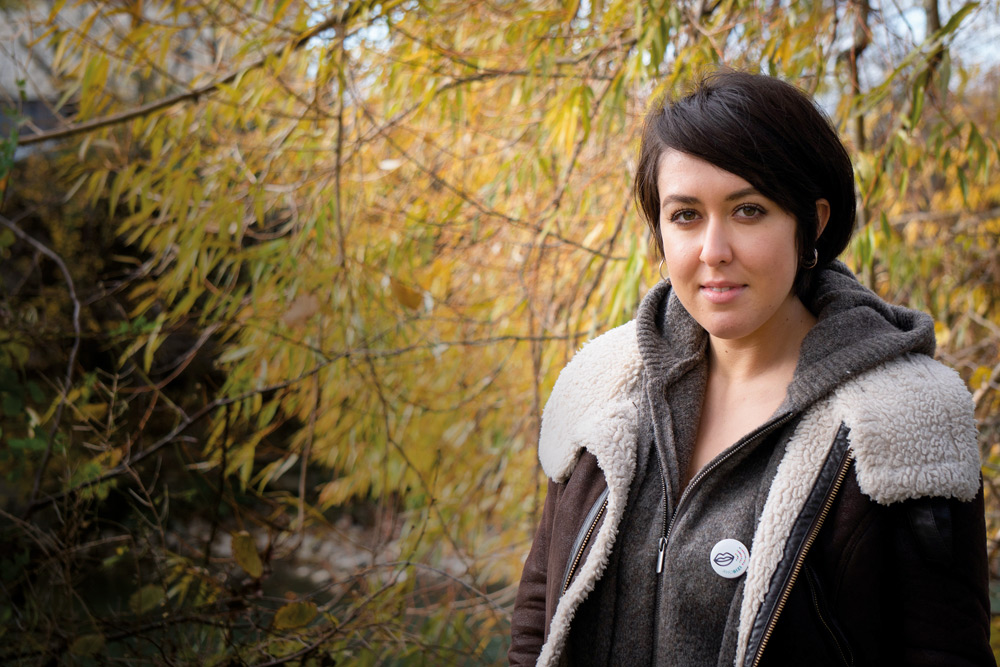
For the time being, it has not begun to learn the languages of Africa, but Euskera, the original language of Grandma. Carmen Landa Garmendia fled Franco in 1962 when she was 21 years old and became an Algiers seam. 58 years later, grandmothers and grandchildren first spoke in Euskera on the phone. Grandma is proud that her granddaughter has stitched her family's story. For his part, the young tailor of the language would like to take the thread and the needle and help to unite the Basque society, or at least add a number of speakers living in Basque. It is not an easy challenge, but the stitch has been a success: it came a year and a half ago to Euskal Herria and works as a journalist Ahotsa.info and in Hordago-El Salto. He has supplanted the damn American dream and has now begun to dream in Basque.
What language did you hear in your house in Marseille?
Especially French. It is true that there was a special mixture. My parents also speak Arabic, and we talked with other family members in Spanish.
Why in Spanish?
Because my premiums lived in Alicante [Catalan Countries]. We were going there in summer, and I had a passion to learn their language.
You've lived in different places. Have you chosen accommodation by language, that is, by familiarizing yourself with the local language?
Yes, but with a nuance: I went to practice English to Scotland and got used to Spanish to Salamanca; then, in Galicia, my thought changed a little. There I had the opportunity to live comfortably, knowing Spanish; however, before going I went to galego classes, because I knew I wanted to know from within the reality of the speakers of a small language.
Since then it has been dedicated to Catalan and Basque. Why have you decided to learn minority languages?
Because not seeing one's own languages is giving up local reality. I remember when I was 16, what really made me excited was learning English well, just like most young people today. Politicians take advantage of this to sell the evil educational system PAI in English and entrench the Basque country.
"Sometimes it is necessary to accept Spanish for new speakers to make the transition from one language to another"
In order to be able to demagogy about this, the consent of the citizens is required. Why do we accept all this?
Because we have the dream of life in the United States in our head. In addition, we want to travel abroad, but without having too much to do with the place. That's why flights are getting cheaper and cheaper.
You have turned that way of thinking around. When did the interest in traveling and learning other languages emerge?
When I was 20 years old, I saw through the media the connection between the Catalan independence process and language. The French State has only one official language, French, while Spanish admits other languages besides Spanish. I was interested in that difference.
What is this difference in practice?
The use of the language in the administration changes a lot. Otherwise, language becomes invisible and gradually gets lost. It is clear that the Basques are making a great effort to spread their language and it is regrettable that political decisions do not give continuity to the will of society. In any case, in addition to the very obvious violations of rights, I am led by the example I saw recently on social networks to realize the influence that the lack of official status can have in any detail of life: One person asked if there was any possibility that the permission to go out into the street in the confinement was written in Basque and a French writer answered that he wanted his written authorization in Latin...

That is, to mock the interrogator.
Of course! In addition, in the light of the replies, I would say that the lack of official status leads to a normalization of contempt.
Contempt, or at best, folklore.
In Ipar Euskal Herria, folklore is in everything: in architecture, in symbols… For example, I was in Ezpeleta recently and I saw it all full of lauburu. As with language, the Basque language seems to be idealized, but the institutions do not receive any support. However, in part, the same thing happens in Hego Euskal Herria.
How?
We all know the Spanish video about the origin of the fine Basque words that have spread so much. It is right as a first step towards the dissemination of the Basque Country, that is, in the beginning to attract neighbours from other parts of the Spanish State to our language and to awaken interest. But to repeat the video so many times means that we have left Euskera in the sacred area and thus make it untouchable. After all, we have mystified it, as if the language that serves to communicate was not the living language. That is why the responsibility of Euskaldunes is to sew Euskera in society, so that it can be extended to the outside.
Do we not become accomplices to this folklorization of the language when we write the same message in Spanish or in French and then in Basque, instead of doing it backwards or in a single language?
I agree. The problem is that when you see yourself in Euskera, you offend people, because if you're in Euskera, you don't understand it, and if the Euskera has gone ahead, the imposition begins to rise and fall.
There is nothing to say in Navarre…
Yes, and not only when it is very evident, for example, among those who have Euskaraphobia. With the videos of Ahotsa.info we often receive comments from angry people, saying: “I don’t understand it, put it in Spanish.” But don't they already have as many means as they want in Spanish?
Subtitles: For or against?
In the world of communication it is undeniable that the public should be taken into account, but it is in the hands of the Basque communicators to give priority to the Basque country or to try to reach more people through the Spanish language. In Ahotsa.info we want to address the whole of Navarre, and of course we have discussed it.

In the end, sometimes you decided to use Basque and other times Spanish.
Yes. If we translate videos into Basque into Spanish, we should also do the opposite. But, of course, all Euskaldunes in Navarre know Spanish, so it does not make sense. What happens is that we think that in the future all the Navarros that know Spanish should know Basque and the subtitles do not go in that direction. That is our challenge. I would say to those who demand subtitles more than they ask to go to any other media, because we are not obliged to return everything.
Moreover, the offer is not reduced.
The content is very varied, but not so in the Basque world. When I turn on ETB1, some programs are embarrassing to me. I do not think it meets the needs of all Basques at all.
Can you give examples?
Coronavirus, for example. First they inform us at length of the situation of the CAV, after Navarre, and, finally, if there is time, Iparralde listened carefully. Even when the French Government set the lockdown, we had to wait more than twenty minutes in Teleberri. It clearly demonstrates the lack of absolute national vision.
The debate on Euskera batua and dialects has recently been opened.
The first time I spoke in Basque with my grandmother was very exciting for both of us, and she's very proud of me. It's hard for me to understand Usurbil's closed Basque, but we can talk together. I find it terrible that, even if he lived in Algiers since he was a young man, his mother remembered his language perfectly. In addition, it dominates French and Spanish and develops in Arabic. On the other hand, I am sad because his level of Euskera has a complexity of inferiority. He told me that my Basque was much nicer and cleaner than his.
Now it seems that the combined pressure is underestimated.
Yes, they say it's pure artificial creativity. My grandmother doesn't realize that today her dialect has a lot of personality. He suffered the contempt of Francoism and now, on the other hand, the Basque world is spreading contempt for unity, also in many other languages. The need for unified Euskera is undeniable, just as it is essential to protect the dialects. This type of confrontation separates us, also separates us from the concepts of Euskaldunberri and Euskaldunzahar. I believe that the Basques have more problems to discuss. As we have said, folklore or mytification does not benefit those of us in the learning process, and often not even the attitude of a few Euskaldunzaharras.
For the corrections?
Its nature. If I said something wrong, I know right and I will thank you, but don't be purist.
Where's the limit?
In Spanish. Sometimes it is necessary to accept them for the new speakers to make the transition from one language to another. There is no pure language, if he is alive.
You have already overcome the transition.
Last week I dreamed of Basque! I didn't expect it, and I was very happy. That means I'm able to think about Euskera.
In what language do you usually think?
In French, but it's true that sometimes I include Spanish-language expressions, even when I talk to my mother.
Could you say you're totally immersed in Euskera?
I'm on my way, but not yet.
Do you think of the Basque students model?
The truth is, I'm a little bit tired of compliments. Of course, I'm happy and proud, but I think taking my case as a model can be harmful. In fact, for my work it has been positive to learn Basque and so it should be for everyone. Unfortunately, this is not the case in general and a great effort must be made to learn Basque in Pamplona. In addition, the titles are fine, but we want to live in Basque and we have too many obstacles. That's why I'm afraid we don't ask too much of those who are learning Euskera to model me. Rather than admiring the terrible individual experiences, we have to join forces to promote collective projects such as Euskaraldia and Errigora.
I think it will have to do with the hangover of the profession, but I have to acknowledge that I look at the linguistic landscape of the places I visit. Signs that stick on the walls, hanging from streetlights, billboards, and supports that appear in shops or companies (signs,... [+]









